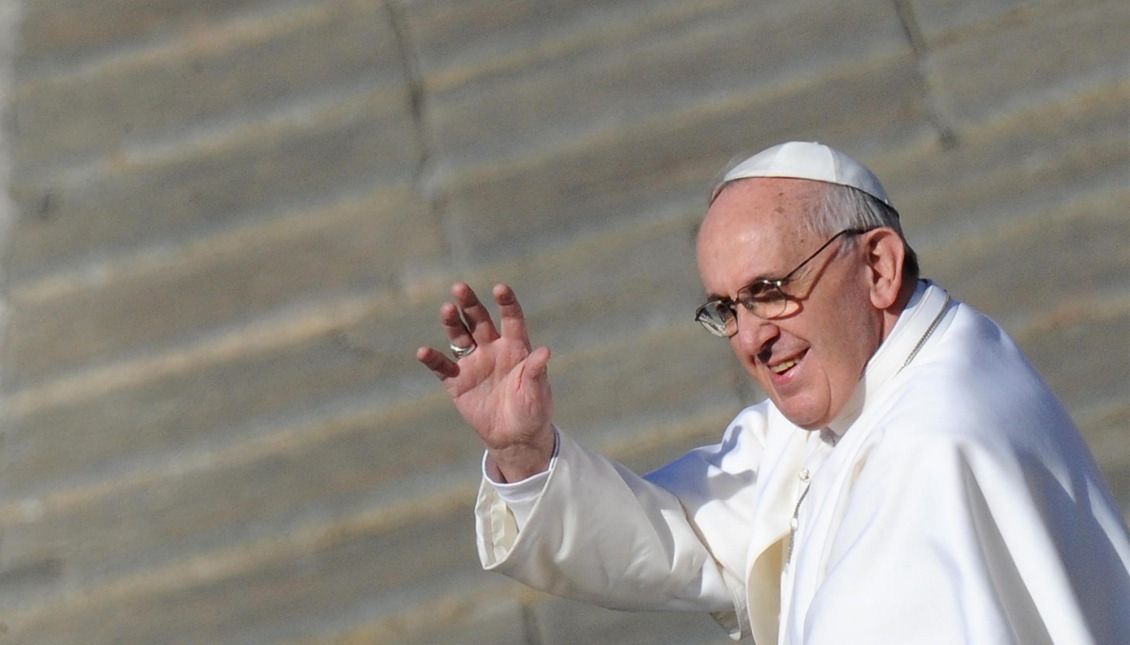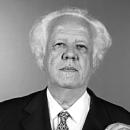
Habemos Papa ... in Philadelphia
It isn't official until it's official, particularly when the Vatican is involved.
MÁS EN ESTA SECCIÓN
It isn't official until it's official, particularly when the Vatican is involved. So, though months ago Pope Francis said he'd be coming to Philadelphia, it isn't until today that the area's Catholics can celebrate it fully.
Not only the Catholics, of course. With an anticipated attendance in the millions for the papal Mass he will celebrate, the Pope's visit will undoubtedly be an economic boon to city and state — as evidenced by the fact that both Governor Tom Corbett and Philadelphia Mayor Michael Nutter joined Archbishop Charles Chaput in the delegation that went to the Vatican to plead Philadelphia's case.
For Philly's Latino Catholics, the impact of Pope Francis' visit to coincide with the World Meeting of Families in September 2015 will be much more profound than economics, however. It will, I daresay, be as important to us as the late Pope John Paul II's visit in 1979 was to Philadelphia's Polish, Central and Eastern European Catholics. Papa Francisco, as we know him, is our Pope, one who can speak to us in our language with full knowledge of the challenges we have experienced here and, for those of us who immigrated here, in our countries of origin.
He has, for example, in his short tenure already cleared the way for the possible canonization of Archbishop Oscar Romero — who in El Salvador is already popularly held to be a saint — whose cause had been blocked for years by a terribly blinkered understanding of the realities of Central America during the 1980s.
He has engaged with Latin American theologians whose preferential option for the poor had previously been discredited as "liberation" theology and he has, in fact, called the whole Church to "challenge all forms of injustice" and the "economy of exclusion."
He has called for immediate humanitarian response to the families and unaccompanied minors who crossed the U.S. border earlier this year, and has been vocal about decrying the repression and violence in Mexico which has recently galvanized protests not only in Mexico, but also solidarity protests in Mexican-American and Mexican-immigrant communities in the United States.
As it happens, the Pope will be visiting the United States at a critical juncture in terms of Latino Catholic identity.
A recent Pew report shows that Latin America — home to the largest concentration of Catholics in the world — is quickly becoming less Catholic. 84 percent of Latin Americans were raised Catholic, but only 69 percent of them still identify as such, according to the report. Likewise, in an earlier report about Latinos in United States, released in March of this year, Pew states that nearly one-in-four U.S. Latinos are former Catholics. Only 55 percent of us still identify as members of the faith.
While the reasons for the decline are many and complicated, one of the refrains of those who have abandoned Catholicism here, is that Latinos have experienced only a tepid welcome at Catholic parishes in those areas of the U.S. with emerging rather than established Latino populations. Many of those have been unable — or unwilling — to offer liturgies and sacraments in Spanish, treat their Spanish-dominant congregations as second-rank, and are deeply discomfited by the more ebullient Latino style of worship and our forms of popular religiosity (including a long tradition of liturgical dance, which gets the stink-eye from offices of worship on the East Coast).
Some of this is certainly felt in Philadelphia, where the Church derives most of its traditions from Anglo-Irish practice, and where not only a clash in styles but also a paternalistic (and damaging) belief that Latinos are more poorly catechized than their Anglo counterparts, has contributed to a number of Latino Catholics feeling marginalized within the larger religious community. This has been further exacerbated by the loss of the chapel that was once the historic heart of Latino Catholicism in the city; the perceived diminution of ministries; and the subsuming of growing Latino parishes into more stagnant non-Latino ones.
Despite the difficulties, the Philly Latino Catholic population humbles with its devotion. A number of years ago, the parishioners of St. Thomas Aquinas and Annunciation churches petitioned and fought to have a shrine for Our Lady of Guadalupe installed in the Cathedral Basilica of SS. Peter and Paul. When it was finally installed, the congregations — a majority of them among the lowest-income Catholics in the entire Archdiocese — bought roses and rosaries to hand out to everyone in a consecration Mass that more-than-filled the cavernous Cathedral. These same humble (and for the most part, invisible to the mainstream) Catholics have for years have cooked hundreds of tamales for any who attend the annual Hispanic Heritage Mass, and have carried the weight of devotion on their shoulders for miles during celebrations of El Señor de Los Milagros and Our Ladies of Guadalupe, Altagracia, Providencia and Caridad de El Cobre.
The edifice of the U.S. Catholic Church may seem to be crumbling when we contemplate the numbers in surveys, but if the children that abound at the aforementioned celebrations of faith are any indication, Latino Catholics may yet be the mortar to keep it together.
Today I've had conversations with both active and lapsed Latino Catholics — as well as one Latino convert to Methodism — who say they are planning to participate in whatever is open to us when Pope Francis visits Philadelphia. I vacillate between being thrilled at the prospect of being among the (possibly) millions who gather to see the Pontiff, and the horrific fear that the city will be as it was during the Phillies' World Series parade day — unbearably unrecognizable. But in either case I know already that on that day at least, Latinos will not be relegated to the "margins" — of the Church or of Philadelphia itself.
Because the most influential and beloved Latino in the world will have our backs.






DEJE UN COMENTARIO:
¡Únete a la discusión! Deja un comentario.